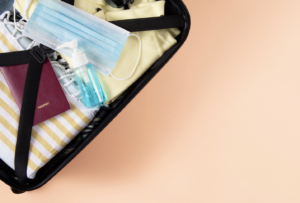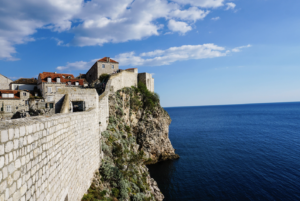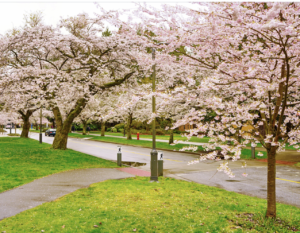Anúncios
Bornholm, a remote Danish island, will eliminate garbage by 2032. How will it get there?
Bornholm residents say you’re not a true Bornholmer unless your family has been here for three generations. Their pride is evident. This diamond-shaped Baltic Sea island of 40,000 people is famous for its natural beauty, beautiful fishing villages, and arts and crafts culture. Known as “the sunshine island” for having the most daylight in Denmark, it draws hundreds of tourists.
The island has challenges too. The 1970s and 80s economy depended on fishing, but as Baltic Sea fish numbers collapsed and Denmark privatized licenses, many small-scale fishermen vanished. Bornholm needed transformation. Residents earn 20% less than average in Denmark, making the island impoverished.
Anúncios
An idea came to Jens Hjul-Nielsen in 2018. When appointed to manage BOFA, Bornholm’s waste authority, he was tired of Bornholm slipping behind. “When we went to the central administration in Copenhagen, our message was pretty much always the same: ‘we’re from Bornholm, we have difficulties with this, that or the other, can you help us in some way?’ – very often with money,” says. “And I was thinking, instead of always being the ones who show up and say, ‘we have a problem’, what if we were the ones who showed up and said ‘we have a solution for the rest of you’?”
Zero garbage will be burned or landfilled on the island by 2032. Listen to Bornholm’s zero-waste target.
Anúncios
Bornholm’s main non-recyclable rubbish incinerator will shut in 2032. He pondered removing it instead of replacing it.
Denmark generates more waste per inhabitant than any other EU country. Denmark is “trapped by incineration,” argues former St. Lawrence University environmental chemistry professor Paul Connett, a waste management expert. “They think this is good behavior,” he says.
Denmark’s 23 cutting-edge incinerators burn Danes’ and foreign rubbish to power its district heating and electrical infrastructure. Denmark led the globe in landfill waste reduction and cleaner trash solutions with its “waste-to-energy” strategy. Greenhouse gasses from rubbish burning hamper Denmark’s 2030 70% emission reduction goal. The government intends to decrease incineration by a third by 2030 since recycling saves more energy and materials.
Your laptop’s treasure
Jens thinks BOFA recycles 70% of Bornholm’s 80,000 tons of waste. 25% is burned and 5%, mostly toxic, is discharged.
Bornholm wants its energy sector to be carbon neutral by 2025 (listen to their fossil fuel elimination plan). The island produces most of its power and heating from wind, solar, biogas, and sustainable biomass, with plans to add more in 18 months.
On a lovely Monday morning, residents arrive in cars and trucks to BOFA’s recycling facility in Ronne, the island’s main town, to sort their trash into 37 categories, including unusual ones like windows, toilets, and TVs.
Bornholm uses biomass for zero-waste. Diaper composting is being tested by BOFA zero waste project manager David Christensen. Diapers are hard to recycle. Non-biodegradable disposable diapers end up in landfills where they may degrade over 500 years.
“It’s funny because back when we launched the vision, one of the most common ways people liked to [have a] dig at us was by saying, ‘What are you going to do about the diapers?’,” he says. “Petrochemicals and polymers are difficult to handle without incineration or landfilling. Testing system-destabilizing technology.”
David uses a 100% biodegradable diaper made from plant-based polymers and cellulose. Shredded kindergarten diapers, yard waste, and brewing grains are mixed in a massive metal silo. The mixture is sanitized by heating to 70C (158F) for an hour. Diapers are gone after 10 days in the silo, making compost safe for agriculture. “The regular composting that we do on site with the mountains of garden waste takes around 10 to 12 months,” he says. “This dramatically speeds it. Of course, energy is needed. It affects the game otherwise.” Since Bornholm’s grid is mainly renewable, the composting machine emits little carbon.
An apparent 20m (66ft) white balloon stands out among the island’s lush pastures and windmills. A biogas factory converts the island’s huge pig feces into renewable gas for heating and electricity. Bornholm slaughters 500,000 pigs for pig farming yearly. The plant processes 120,000 tons of organic waste to generate enough gas for 25% of the island’s residents. “It’s mostly cow and pig manure,” says plant manager Georg Koefoed. “It’s slaughterhouse waste, and we get some industrial wastes as well, like oil or apple pulp.”
First, sanitize rubbish at 70C (158F), like biodegradable nappies. Biological digestion produces gas at the top, which a generator uses to create electricity. Farmers use leftover sludge—digestate—as fertilizer. Since it can only process 20% of the island’s pig manure, the business has requested the local authorities to expand fourfold. Climate-conscious Bornholmers worry that the development would bind the island to animal husbandry for years, particularly because meat production contributes to climate change.
David Christensen: We’re trying system-upsetting technology
“Yes, that’s another argument,” Koefoed says. Bornholm, like Denmark, is trashy. We plan to use this gas for heavy hauling. Many ship and aircraft companies want alternative fuels. Demand will rise.” If people ate less meat, Koefoed says the plant might ingest industrial greenhouse vegetable waste. “We can use all organic mass. I think we should plan.”
Biogas generation from biological waste is rising globally. Ten metric tons of Bowenpally Market fruit and vegetable waste are transformed into electricity everyday, and Hyderabad’s biogas sector is expected to attract major investments. Methane and carbon dioxide, planet-warming gases, make the gas imperfect. Biogas substitutes fossil fuels and reduces greenhouse gas emissions by decomposing landfill waste.
Bornholm seeks to eliminate all rubbish except organic waste, which needs cultural change. Zero waste entails recycling, reusing, and purchasing less. In her new, larger second-hand shop in Ronne’s center, Lene Green Olssen unloads cardboard boxes. Bornholmers can rent a shelf from Green Olssen to display unwanted items for a small fee. Business is booming, she adds. Our schedule is almost full. It’s gained popularity for clothing. It prompted my relocation.”
Green Olssen developed “Last stop before BOFA” on Facebook to donate unwanted stuff, named after the island’s recycling facility. After five years, it had 12,800 members—half the island’s adults. Toys, motorcycles, and food waste are posted. “I’m so proud of them!” said Green Olssen. I thought it was for the poor, but I was mistaken. Everyone makes me joyful.”
Because of its tiny population of 40,000, Bornholm’s zero waste strategy is confined to metal recycling. Recycling shipments to Denmark, Germany, and Sweden emit carbon. Hjul-Nielsen says recycling multi-material materials is difficult. “A shampoo bottle can consist of four or five different kinds of plastic,” says. We need producer help. In case lawmakers refuse. You can prohibit this product from sale.”
The biodegradable diaper experiment is promising for sanitary waste, but Christensen admits that all island infants would need expensive special nappies. Construction and demolition waste and asbestos are toxic and non-recyclable. Bornholm’s mayor, Jacob Trøst, hopes new technology will help achieve the island’s goal, but recognizes its magnitude.
As they say, ‘you need to shoot for the stars if you want to reach the trees’ Be ambitious in this career. His belief is that it inspires everyone to succeed”.
BOFA is expanding its domestic recycling collection service to collect more categories from homes instead of relying on people visiting its centers. The program includes “green mindset” training and circular economy outreach for students, according to David. The island’s zero waste innovation and collaborations platform welcomes design and technology companies like the nappy project.
“The good progress is starting,” says Zero Waste Solution author Connett. I think the island can recycle 80% traditionally. The final 20% is industrial redesign. “A community cannot go zero waste alone.”
In over 69 countries, Connett has advocated zero waste and opposed incineration. He helped Kamikatsu, Japan, and Capannori, Italy, the first European municipality to set a zero waste goal, reach 80% recycling rates. Since these efforts began, hundreds of European cities, including Sardinia, have implemented zero-waste programs. Connett says zero waste should be interpreted broadly, not literally.
Paul Connett: Community trash cannot be eliminated alone
It shows a willingness to reduce, reuse, recycle, compost, and other good things. He says industry participation needs research. “A small Baltic island can’t outmaneuver waste-producing companies. We can greatly pressure industry by working together.”
The desire to progress is most important. An awareness of a moral obligation to sustain society.”






